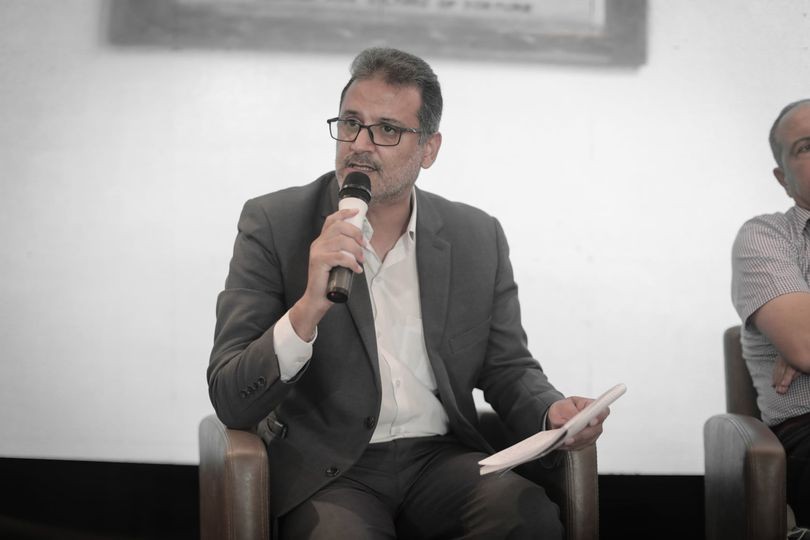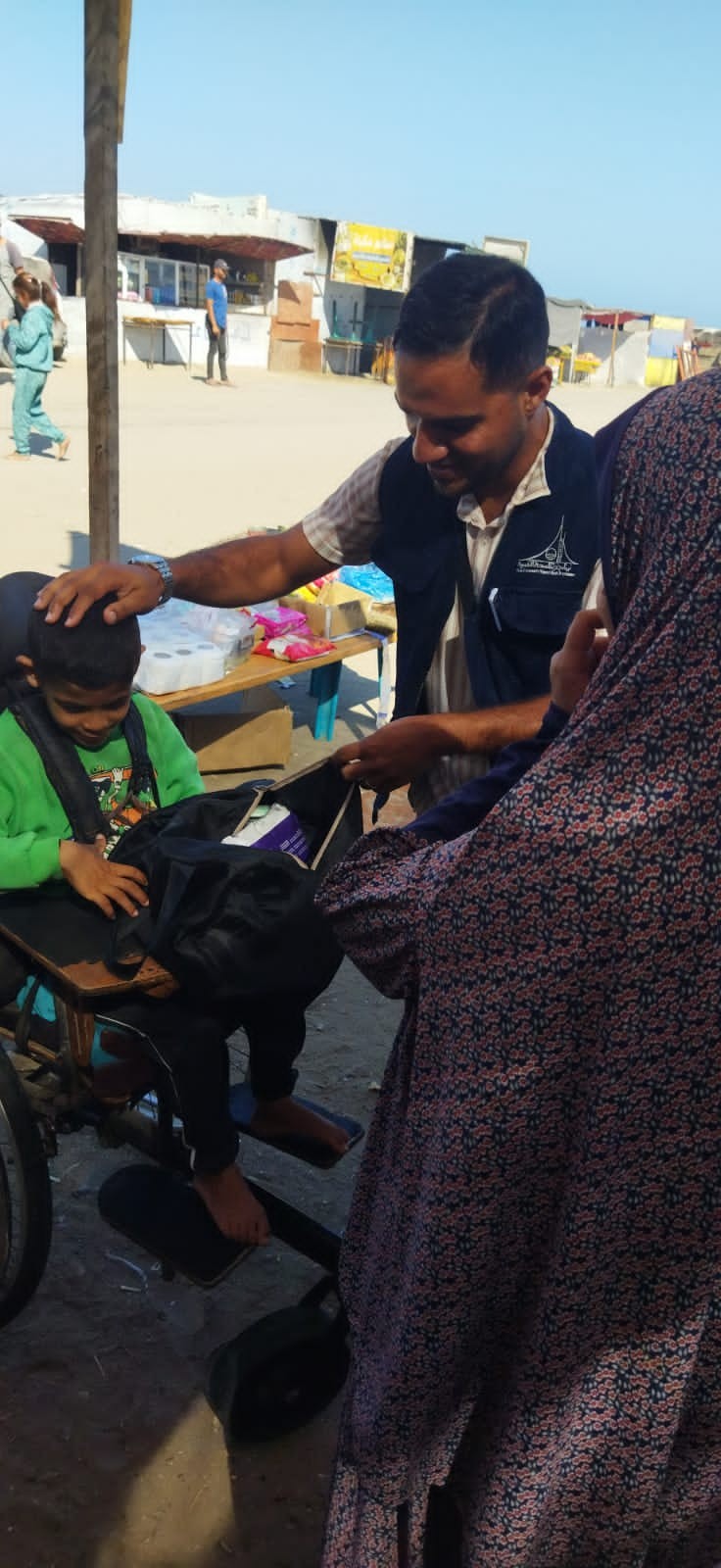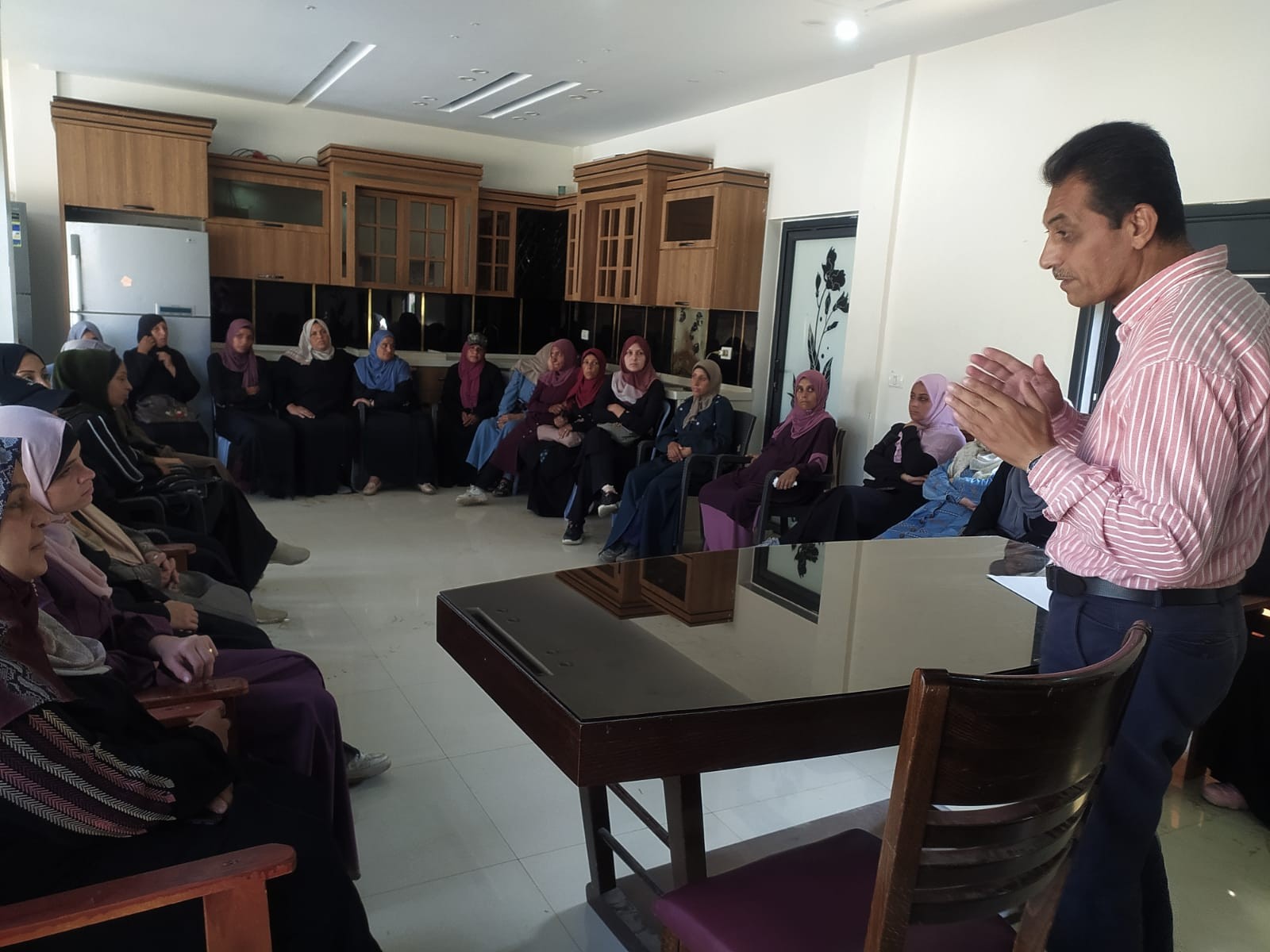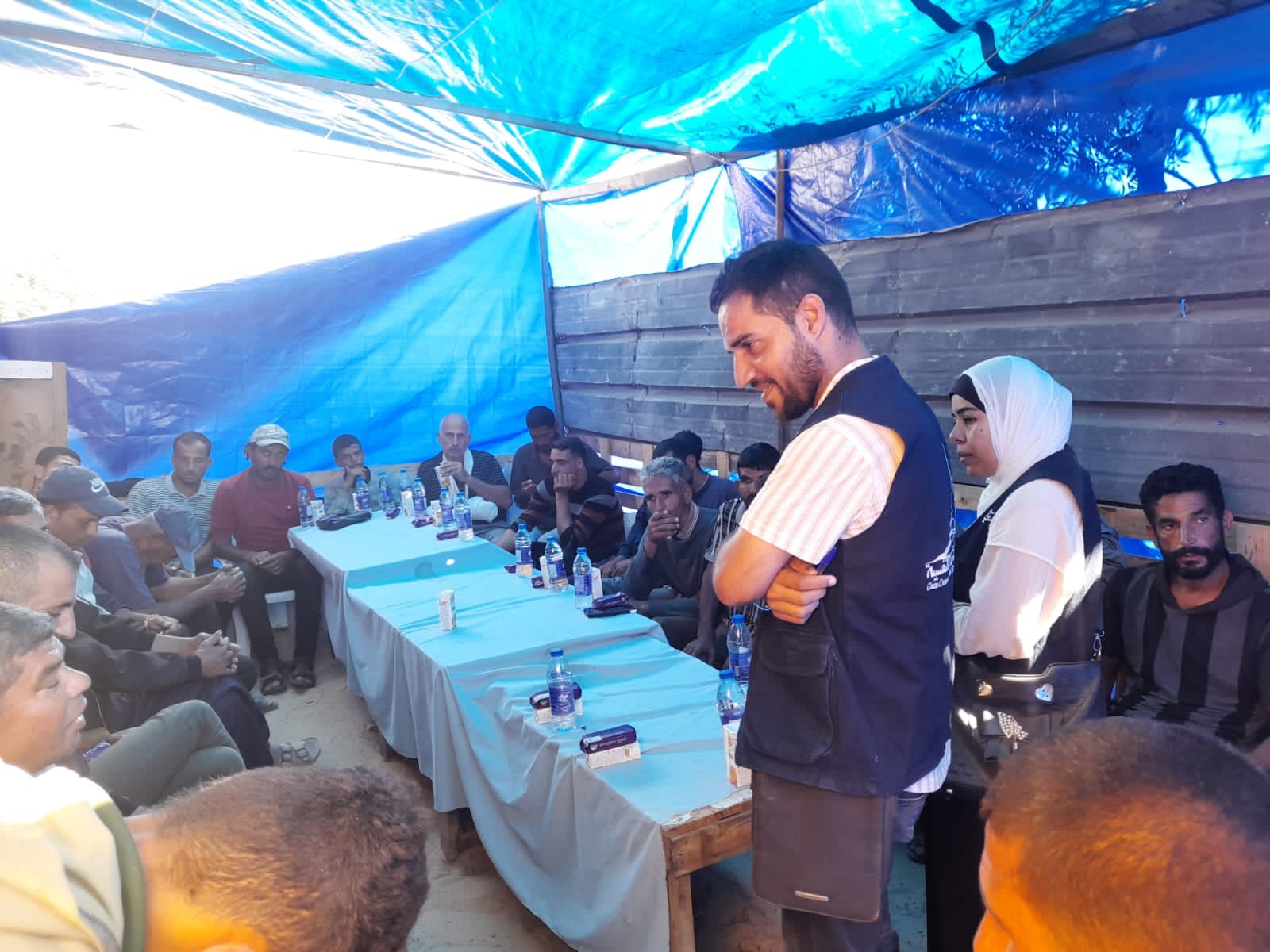
“Workshop – On the International Day in Support of Victims of Torture – “Aggression is Another Type of Torture!!””
As part of its anti-torture campaign on the occasion of the International Day in Support of Victims of Torture, which is marked on the 26th of June every year, Gaza Community Mental Health Programme has organized on Sunday, July 3, 2012 a workshop under the title “Aggression Is Another Type of Torture!!”.
The workshop was attended by mental health and human rights specialists and workers from local and international organization and included a panel of 4 main speakers who discussed the recent Israeli offensive and the Palestinian status under the occupation.
The panel included Dr Yasser Abu Jamei, Director General of GCMHP; Isam Younis, Director of Al-Mezan Centre for Human Rights; Saber Al-Neirab, Officer Director of the High Commissioner for Human Rights; and Khader Rasras, Director of Rehabilitation Centre for the Treatment of Victims of Torture, who was linked to the workshop via Zoom program.
The workshop was started by a viewing a short documentary that showed the mental suffering of people in Gaza as a result of the vast state of destruction that the Israeli aggression has left.
Then the discussion panel started representing their papers and provided their contributions.
At the beginning of the discussion session, Dr Abu Jamei explained the impact of the recent Israeli aggression on the Gaza Strip and the most common symptoms and disorders that have appeared among the population, especially women and children.
He also quoted international reports talking about mental health needs of the Palestinian population under “emergency response”, as well as the needed different levels of intervention that starts from the basic to the most advanced.
In addition, he pointed out to the state of fear and helplessness that the Palestinians lived in Gaza during the Israeli offensive and how parents and caregivers were in distress, especially as they felt unable to protect their children.
During the discussion session, Mr Younis, explained the definition of torture, reflecting it on the Palestinian reality and their daily suffering.
“Torture is causing mental or physical suffering for a helpless person by a state employee, if we compare this definition with what is being done to the Palestinians and the blockade imposed on them, we can clearly see that it is absolutely torture,” he said.
On his part, Mr Saber Al-Neirab, Officer Director of the High Commissioner for Human Rights, talked about the pioneering role of late Dr Eyad Al-Saraj, founder of Gaza Community Mental Health Programme, in establishing a tight link between mental health and human rights. Similarly, the impact of torture should be linked to the mental health state of the individual and the society, he said.
He also considered that mongering the culture of fear and intimidation is another type of torture, referring that “today torture can be defined in the shadow of the subjugation and humiliation that the Palestinians are experiencing in their everyday lives.
Speaking on the state of hopelessness that Palestinians live in the West Bank, Jerusalem and inside the green line, Mr Rasras, explained that tens of homes, farms, water wells and infrastructures are destroyed everyday by the occupation forces. He also explained that when people live such traumatic experiences every day, they develop something know in mental health as continuing traumatic stress disorder.
“it is important to install hope in people so as to help them resist this feeling of subjugation and helplessness. When people took to the streets in Gaza after the declaration of ceasefire to celebrate their steadfastness, that was a positive indicator – that was hope,” he said.
A set of recommendations were produced during the workshop. They are as follow:
· There is a necessity to conduct thorough studies on the mental health impact of the blockade and the continuing Israeli aggression as a type of torture;
· There is a necessity to provide specialized mental health interventions that matches the context of the victims of torture in Gaza;
· There is a need to document the individual and collective experiences of exposure to torture and publish them through different media tools so as to recruit the international opinion and advocate for the stop of the continuing aggression that the Palestinians are living under;
· Professional, legal and scientific discussion on the impact of the different types of torture should continue and more work should be invested in efforts for achieving accountability and redressing the victims of torture.




Read Comments
Steven Rich
March 10, 2019Omnis iste natus error sit voluptatem accusantium nam libero tempore, cum soluta nobis est eligendi optiocumque nihil impedit quo minus id quod maxime.
Van Wimbilton
March 10, 2019Natus error sit voluptatem accusantium nam libero tempore, cum soluta nobis eligendi optio cumque nihil impedit quo minus id quod maxime.